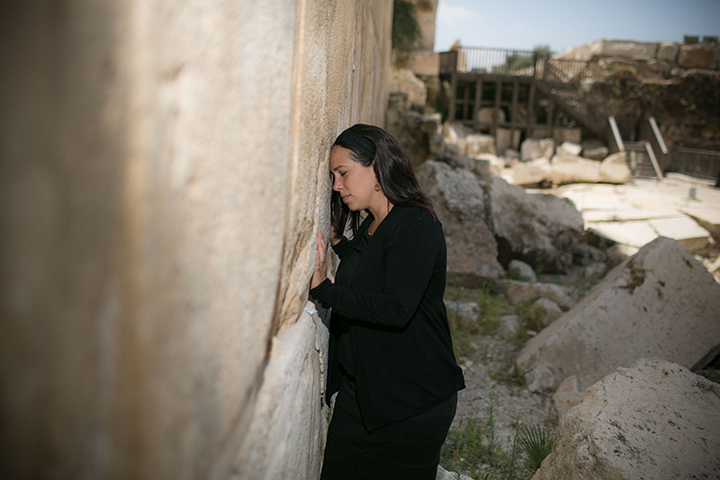|
Yael's Holy Land Reflections
Sep 23, 2020
It Starts With Our Heart
We are in the midst of the High Holy Days, with Rosh Hashanah behind us and Yom Kippur, the Day of Atonement, set to begin on Sunday evening. Yom Kippur is the holiest day on the Jewish calendar, and here in Israel it is the quietest day of the year, with hardly any cars on the roads. It is “a day of Sabbath rest” (Leviticus 23: 32) across the Holy Land. On the eve of Yom Kippur, my family and I will go to synagogue dressed in simple white clothing and without fancy jewelry. We will leave our normal shoes at home and wear slippers or non-leather sandals instead. We will spend the evening and the following day in prayer, and those who are old enough will fast for 25 hours. Denying Ourselves on Yom KippurThese customs that my family observes go back thousands of years to when God directed the nation of Israel to “hold a sacred assembly and deny yourselves” (Leviticus 23:27). According to Jewish tradition, we “deny ourselves” by refraining from eating, drinking, showering or bathing, beautifying ourselves with cosmetics, engaging in marital relations, and wearing leather shoes. These restrictions are intended to free us from our physical nature and help us connect with God. However, my father, Rabbi Eckstein, taught me that they have another purpose. He explained that when we experience hunger, loneliness, or deprivation, our hearts are changed and our lives can never be the same. Empathy and UnderstandingWhen we deny ourselves food and drink, we sensitize ourselves to those who are hungry. When we remain physically separated from our spouse, we remember those who are lonely. When we cannot wash up or use cosmetics, we begin to imagine what it’s like for those who have no place to go for a warm shower or other comforts of home that we take for granted. When we refrain from wearing our usual sturdy, well-made shoes, we begin to empathize with those who cannot afford any shoes at all. In one of my father’s most cherished Bible passages, God says, “Is not this the kind of fasting I have chosen… Is it not to share your food with the hungry and to provide the poor wanderer with shelter—when you see the naked, to clothe them, and not to turn away from your own flesh and blood?” (Isaiah: 58 6-7). On the Day of Atonement, as we fast and repent, we must also experience a change in our heart. It is a day to remember those in need, to feel their pain, and to commit to helping them in any way that we can. Our Power to Help Those in NeedThis year, the message of Yom Kippur has added urgency. Over the past six months, I have seen firsthand how people are suffering as a result of the coronavirus pandemic. There are far more impoverished families, lonely elderly, and hungry children than before and the numbers are growing every day. However, I have also witnessed the power that we have to help those in need. With your help, The Fellowship has increased lifesaving aid to the people of Israel and impacted countless lives in the process. When I stand before God on Yom Kippur this year, I’ll be thinking about comforting the lonely and providing for the poor. I hope that you will join me as we redouble our efforts to help those who are hurting. We can change even this difficult situation for the better. It starts in our hearts, extends to our hands, and sends ripple effects of hope and healing around the world. |
|
|




